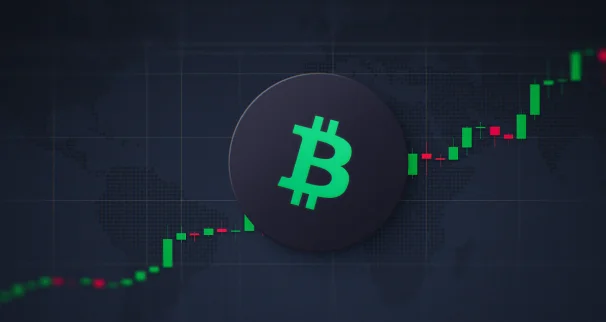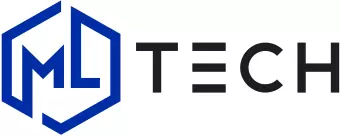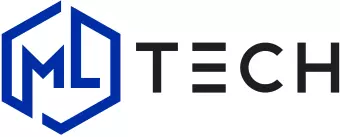Crypto: It is Not Just for Elon Musk
I focused on economics and finance, and became interested in financial markets

- Tell us about yourself – what brought you to Booth?
During my undergraduate studies, I focused on economics and finance and became interested in financial markets. That led me to pursue a Master of Finance degree at MIT. After graduating from MIT, I moved to Chicago and worked to satisfy my passion for financial markets and quantitative finance.
However, I was always interested in entrepreneurship and building new things, so I decided to pursue an MBA to learn areas of management that I didn’t know much about, such as marketing, operations, and strategy. I believed that it would help me to start and lead a business in the future. Not long before my GMAT was expiring, I came across the Evening MBA program at Booth and realized that it’s flexibility in terms of curriculum and work-study balance fit me well.
I wanted to have the ability to focus on advanced classes while continuing to work, as I believe in the value of being able to apply your knowledge directly in practice. Thus, on the day my GMAT was expiring, I applied to Booth. This was the only school that I applied to as I knew that this was the program I wanted.
- What piqued your interest in entrepreneurship? Was this interest set in place before you joined Booth?
I have been interested in entrepreneurship since I was a child. My father was a successful entrepreneur in the education space and was a major influence on me. Growing up, I saw firsthand how entrepreneurship could be both difficult and exciting, so the idea to start my own business someday germinated early on in my life. Much later, while at MIT, I saw a lot of my friends and classmates starting businesses and building companies that impacted the lives of people. This further sharpened my interest in entrepreneurship.
- What resources or classes helped you nurture your interest in entrepreneurship at Booth?
My Booth education has prepared me for entrepreneurship. My first two classes at Booth were Building the New Venture and Machine Learning which were impactful in helping me understand the space I was considering starting my company in. I have also found classes in Marketing, Operations, International Business, and Strategy to be very helpful. Last year, I participated in NVC with another start-up to gain experience and learn from the process. The resources available at Polsky Center and mentorship of professors has been very helpful throughout my entrepreneurial journey.
- Fintech has so many components – lending, payment services, etc. You are interested in algorithmic trading - can you explain algorithmic trading and what sparked your interest in it?
Algorithmic trading is a type of strategy that utilizes automated pre-programmed trading instructions to buy and sell on the financial markets. There are many different ways how algorithmic trading is conducted, but the main difference with discretionary human trades is that computers, software or hardware decide if it is the right time to enter or exit the trade. As I’ve mentioned earlier, I’ve been involved in the quantitative trading space for quite some time on the research and development side. Now, I’ve been enjoying finding inefficiencies in the financial markets. This drove my interest to start ML Tech.
- That is interesting. Is this like Robinhood, but for people who like to deploy machine learning strategies?
Sort of! Like Robinhood, we are on the mission to democratize the access to financial markets. However, we are focused on the algorithmic strategy space. Machine learning driven strategies are a subset of all algorithmic strategies. Some algorithmic strategies may be rule-based or event-driven, for example.
- You started ML Tech to promote algorithmic trading. Who is your core customer segment? Is this like Robinhood where anyone can download the app and just start trading?
We started ML Tech to allow researchers worldwide to get access to the infrastructure that was previously available only to a few secretive trading firms. We allow researchers anywhere in the world to monetize their trading ideas and compete on financial markets with trading firms. We decided to focus on crypto markets initially. Hence, our core customer segment is made up of people who have already traded crypto strategies algorithmically and now want to bring their trading to the next level by getting access to better infrastructure and institutional capital.
- How can a lay person like me use your product? Do you also provide educational services?
Currently we are focused on people who have experience in developing successful trading strategies or are professionals in machine learning or statistics. Right now, it is a competitive selection process to get access to our platform. Later on, we plan to open the platform to the general public and provide significant educational resources and learning about algorithmic trading and different techniques in the space. We want it to be a community where people can help each other grow and improve their trading algorithms.
- Are you involved with cryptocurrency too?
Our initial focus is trading cryptocurrencies. The main reasons for that are global reach, lower barriers to entry for us, and a more inefficient market that creates big advantages for our business model. I personally believe that there is no reason for financial markets to be country-specific or be open only five days of the week. I think we will see a lot of assets being tokenized and becoming tradable in the future. When it happens, ML Tech will be there to provide tools and infrastructure for people worldwide to trade those assets algorithmically.
- Can we mine DogeCoin on your platform? Will you eventually release your own crypto currency?
We do not support mining, but our researchers can create algorithms trading many different cryptocurrencies, including DogeCoin. Like your question about our own cryptocurrency. We had quite a few team discussions on that, and while we do not plan to do it now, there is potential to create a token that allows researchers and other members of the community to bet on different algorithms and ideas.
- Did you leverage any Booth resources to start your own company?
To some extent. The Polsky Center and Booth’s Entrepreneurship curriculum have been helpful to get valuable connections and resources. I also had tremendous support from some of my professors and classmates.
- What advice would you give Boothies interested in Fintech entrepreneurship space? Or do you have any general advice that you’d like to share with Boothies about how to be successful with their MBAs?
It would be a cliché, but I would recommend, “Just do it”. Of course, everyone’s situation is different, but few things widely apply.
First of all, find a co-founder or a good team early to join. If you are new to the FinTech space, finding the right people is even more important. I would also recommend participating in NVC with some team - it’s lower risk and exposes you to the dynamics of a real startup. Entrepreneurship classes and speaker series are very motivational and a good opportunity to learn.
In terms of general advice for other Boothies, I would say try to establish genuine connections with your classmates and professors, and leverage that network. Leveraging the network means not only asking for help, but also offering help proactively to others. For example, if you meet someone who is interested in your industry during the Boothies Breaking Bread series or other social events, don’t be lazy! Put in effort, think of how to help them, and offer meaningful introductions. It may take you just thirty minutes of your time, but it can help someone to find their work passion or their dream job and change their lives.
Try to interact with your classmates outside the school. Of course, for me a lot of my studies were remote due to the pandemic, but one of my favorite memories was the Booth Argentina trip. I definitely recommend travelling with your classmates when possible. And of course, for new students who started during the pandemic, enjoy the Gleacher Center’s bar (once it opens) and the informal interactions with your classmates that it offers!
Leo Mindyuk started at Booth in Winter 2019 and will graduate in June 2021. He is a co-founder and CEO at ML Tech. ML Tech is a fintech startup building the next generation trading platform to connect crypto investors with top researchers worldwide.
With school and working at a growing start-up there is not much free time, but when Leo gets a chance he enjoys being outdoors, hiking or biking. He is also working on improving his Spanish.
He enjoys learning constantly and considers traveling as one of the most interesting ways to learn new things. He has already visited about 40 countries, and like many others, wants to start traveling again. He enjoys spending time with the locals when he travels. This allows him to better understand local culture and immerse himself in a learning experience. Find Leo on Linkedin here
Author: ChiBus Staff

